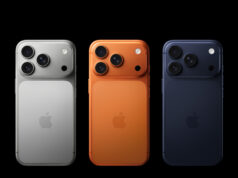Employers are now utilizing artificial intelligence to simulate live, two-way screener calls using synthetic voices, marking the arrival of the next generation of job interviews, for better or worse.
(Bloomberg) — Employers are now utilizing artificial intelligence to simulate live, two-way screener calls using synthetic voices, marking the arrival of the next generation of job interviews, for better or worse.
According to startups like Apriora, HeyMilo AI, and Ribbon, their software for conducting real-time AI interviews via video is being quickly adopted. Candidates speak with an AI “recruiter” that probes for essential abilities, poses follow-up questions, and provides hiring managers with organized feedback. Without needing recruiters to be online all the time, the goal is to make interviews more accessible for candidates and more efficient for employers.
This concept looked crazy a year ago, according to Arsham Ghahramani, co-founder and CEO of Ribbon, an AI recruiting firm based in Toronto that has raised $8.2 million in a funding round headed by Radical Ventures. “It’s pretty normalized now.”
The time savings appeal to employers, particularly if they are doing hundreds of interviews every day and recruiting a large number of candidates. Even though the majority of Americans surveyed by Consumer Reports last year expressed discomfort with the idea of algorithms grading their video interviews, job candidates may value the opportunity to interview at odd hours, particularly those in occupations with frequently erratic schedules like nursing and trucking.
The need to scale up the employment process led to a switch to AI screener interviews at Propel Impact, a Canadian charity that invests in social impact. In the past, the organization evaluated applicants via written submissions and interviews performed by alumni. Plans to hire over 300 fellows this year, however, soon made that strategy untenable. The usefulness of textual application materials was also being diminished by the emergence of ChatGPT. Cheralyn Chok, executive director and co-founder of Propel, stated, “They were all the same.” “Same patterns, same syntax.”
AI technology that can communicate with job seekers on a screen has been in development for years. In the early 2010s, companies such as HireVue introduced one-way, asynchronous video interviews. Later, they included automatic scoring based on language analysis and facial expressions, which attracted both praise and criticism. (In 2020, the visual analysis was discontinued.) However, the experience was essentially left static by such platforms: candidates speaking into a screen without any interactivity, leaving recorded responses for a human to analyze after the fact.
Not until late 2022, when ChatGPT and other huge language models were made publicly available, did developers start to envision and create anything more dynamic. Ribbon was established in 2023, and the next year it started selling its product. In just eight months, the business acquired about 400 clients, according to Ghahramani. Although they both declined to disclose their customer counts, HeyMilo and Apriora both began around the same time and report rapid growth.
Recruiters weren’t very interested in ChatGPT the first year it was released, according to HeyMilo CEO Sabashan Ragavan. “However, technology has advanced significantly over time.”
Technical Errors
The rollout hasn’t been flawless, though. A few videos that have gone viral on TikTok depict interview bots misinterpreting basic responses or repeating sentences. One example that went viral was an AI interviewer made by Apriora that kept saying “vertical bar pilates.” The mistake was caused by a voice model misinterpreting the word “Pilates,” according to Aaron Wang, co-founder and CEO of Apriora. He underlined that such occurrences are uncommon and stated that the problem was resolved quickly.
He declared that “we won’t get it right every single time.” “The incident rate is significantly lower than 0.001%.”
Although it was unclear whether the slight issues were caused by Ribbon or a candidate’s Wi-Fi connection, Chok claimed Propel Impact had also experienced them. The candidate could just restart in those situations.
Braden Dennis, who has interviewed candidates for his FinChat, an AI-powered investment research firm, using chatbot technology, pointed out that AI occasionally has trouble answering certain follow-up questions from candidates. He declared, “It is undoubtedly a very one-sided conversation.” In particular, when the applicant inquires about the position. It can be challenging to field those from the AI.
The technology’s startups highlighted their monitoring and support strategy. HeyMilo keeps an automated alarm system and a round-the-clock support staff to identify problems like lost connections or unsuccessful follow-ups. According to Ragavan, “technology can fail, but we’ve built systems to catch those corner cases.”
The protocol used by Ribbon is comparable. An alert is sent to the CEO whenever an applicant selects a support button. According to Ghahramani, “interviews are high stakes.” “Those issues are very important to us.” Ghahramani added that although the glitch videos are a negative reflection on the industry, he sees the TikToks mocking the tools as evidence that the technology is being more widely used.
Getting Job Applicants Ready
Applicants are informed upfront that they would be interacting with an AI at FinChat, which employs Ribbon for its screener interviews, and that the team is conscious that this may come across as impersonal.
Dennis stated, “When we send them the link to finish it, we let them know that we know it is a bit dystopian and takes the ‘human’ out of human resources.” “We are aware of that part.”
However, he claimed that the asynchronous style guarantees that exceptional applicants are not overlooked and helps expand the talent pool. Dennis stated, “Once I sent them the AI link, a few people dropped out of the running.” “We are an AI company after all, so if that works as a powerful deterrent, then that’s fine.”
Propel Impact helps applicants be ready by being transparent about why it uses AI in interviews and by holding educational sessions with human hosts to keep a personal connection with candidates. “These tools will be used much more often as long as businesses provide human touch points along the way,” Chok stated.
Regulators have paid attention. Theoretically, AI interviewing tools should be transparent and equitable, but they may soon come under increased scrutiny for how they evaluate applicants and whether or not they institutionalize bias. New York City requires yearly bias audits for any automated hiring technologies used by local employers, while Illinois now requires businesses to disclose whether AI is evaluating interview tapes and to obtain candidates’ agreement.
Going Beyond Screening Calls
According to Ribbon’s Ghahramani, 15% of interviews on its platform now proceed beyond the screening stage, up from just 1% a few months ago, even though AI interviewing technology is primarily utilized for initial screenings. According to this, consumers are utilizing the technology in novel ways.
Employers are experimenting with AI interviews to gather feedback on the interview process or remuneration expectations. These are potentially difficult talks that some recruiting managers and candidates might prefer to have left to a bot.
AI interviews are occasionally utilized for technical assessments or even to take the place of human second-round interviews. “Stages can be compressed,” Wang stated. “That initial AI dialogue can include anything from “Are you permitted to work here?” to more complex, domain-specific inquiries.”
The majority of businesses that offer AI still see it as a tool for information collecting rather than making the ultimate decision, even as the technology takes over more aspects of the recruiting process. Ragavan stated, “We don’t think AI should be making the hiring decision.” “It should only gather information to back up that choice.”
The sixth paragraph has been updated to make clear that HireVue employs language analysis and to mention that it eliminated facial analysis in 2020.







